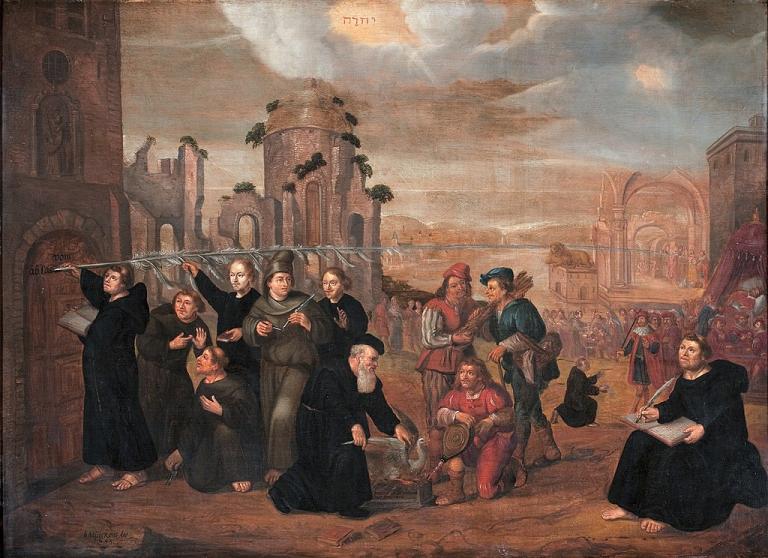
In this political season and amidst the debates about liberal democracy, we would do well to reflect on the political influence of the Reformation.
Hillsdale professor of politics Adam Carrington sums up that influence in his RealClear Religion article On October 31, Remember the Political Contributions of the Reformation.
With the Reformation teaching of “Sola Scriptura,” he says, the authority of a written text (the Bible) was held to be greater than that of a human ruler (the Pope). This gave us the concept of the rule of law, particularly as seen in the role of the American Constitution.
“Sola Scriptura” also led to the push for universal education, so that people of both genders and from every walk of life could read God’s Word. “This massive expansion of who could read opened the door for increased political participation, both based on Biblical principles and on the increased capacity to read other documents besides Scripture, such as political pamphlets and newspapers.”
The doctrine of the priesthood of all believers did away with spiritual hierarchies and so undermined political hierarchies. “The equality of human beings before God naturally bolstered ideas of human equality in the political realm.”
The concept of “covenant,” an emphasis to be found among the Reformed more than the Lutheran, had to do with a binding agreement, both between God and man (in the Bible) and also between other human beings (as in the Mayflower Compact). This, says Prof. Carrington, would lead to social contract theory, according to which “legitimate governments are formed by the people agreeing among themselves and/or with a ruler on a state’s purposes, procedures, and structures.”
I’m glad to see that Prof. Carrington also recognized the importance of the doctrine of vocation. This teaching exalted “the dignity of the common man.” This teaching “recognized dignity in all persons’ work and carried political implications to codify that view into law. In our own time, when some tend to denigrate working-class jobs, this Reformation principle defends the dignity of all work and thus of all workers.”
The Reformation also contributed to the rise of the nation-state, with its emphasis on local rulers (as opposed to the Holy Roman Emperor) and the development of national churches (as opposed to transnational Catholicism). “Contra global, transnational trends, Protestantism often reinforced national identities even as it saw underlying unity among churches across national borders. Thus, current movements seeking to respect and preserve the nation-state and the goods attending it owe a great debt to the Reformers.”
In light of the current controversies, all of this makes me think that those of us in the Reformation tradition should be in favor of liberal democracy, Constitutionalism, and small government conservatism. And, indeed, most of the “integralists”–who have problems with individual liberty and popular rule, who prefer a more authoritarian “big government conservatism,” and who get nostalgic about multi-national empires over individual nation-states–are Catholics.
Illustration: “The Dream of Frederic the Wise of Saxony” by Jan Barentsz. Muyckens (1643), Public domain, via Wikimedia Commons. [Referring to an alleged dream the Elector had on the night before Luther posted his theses, of a monk writing something on the door of the Castle Church with a quill so long that it reached to Rome and knocked the tiara off the pope’s head.]













